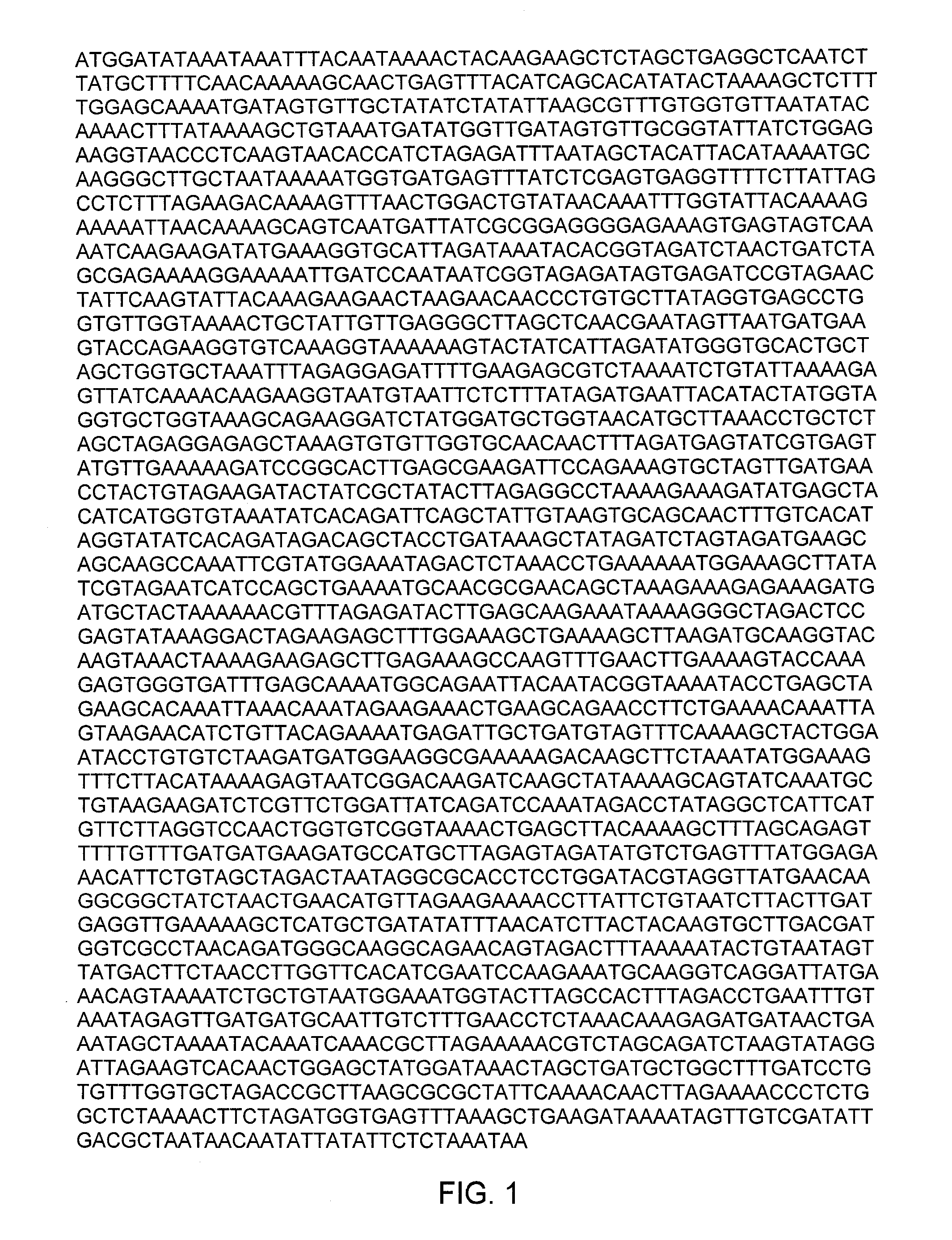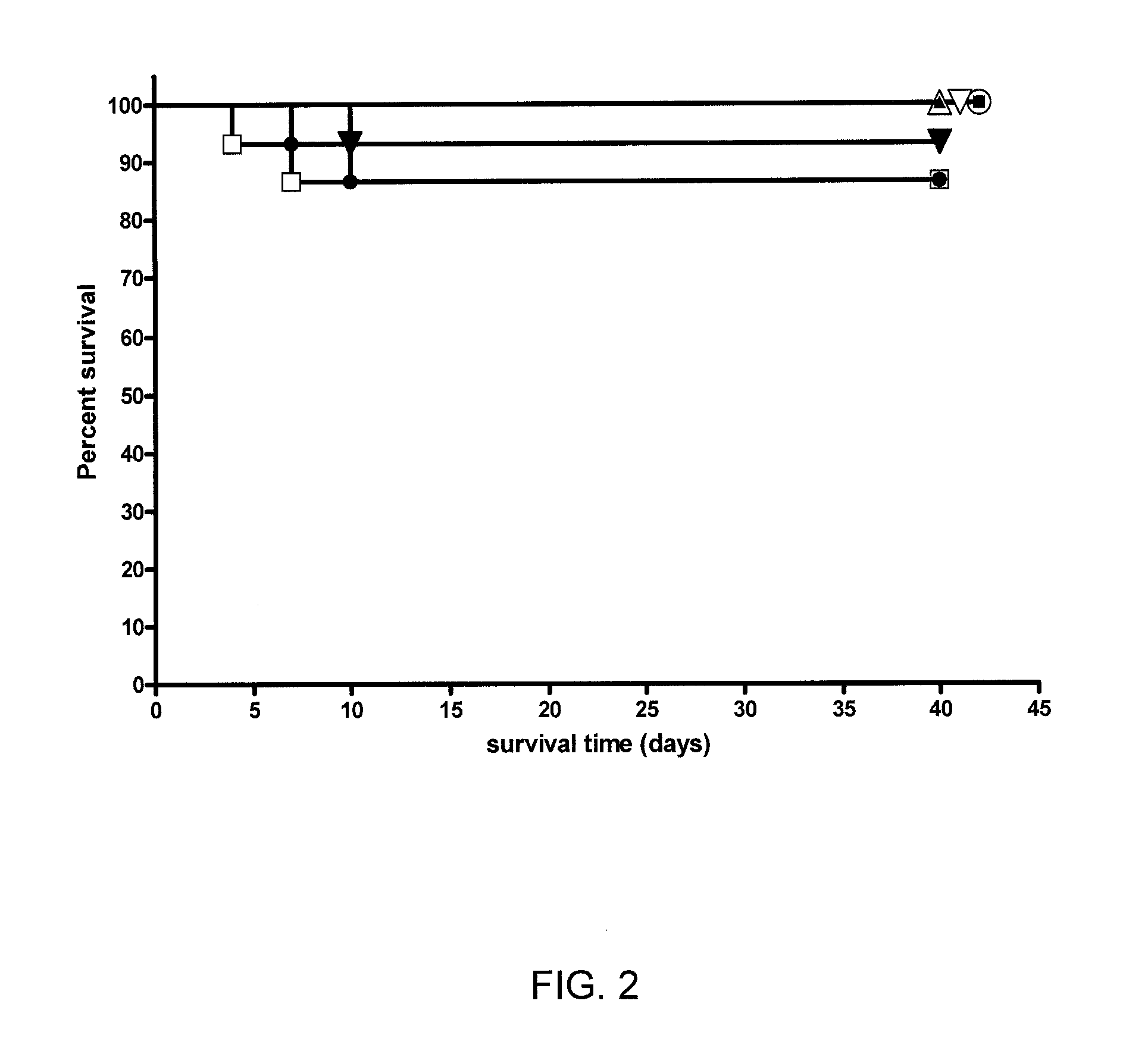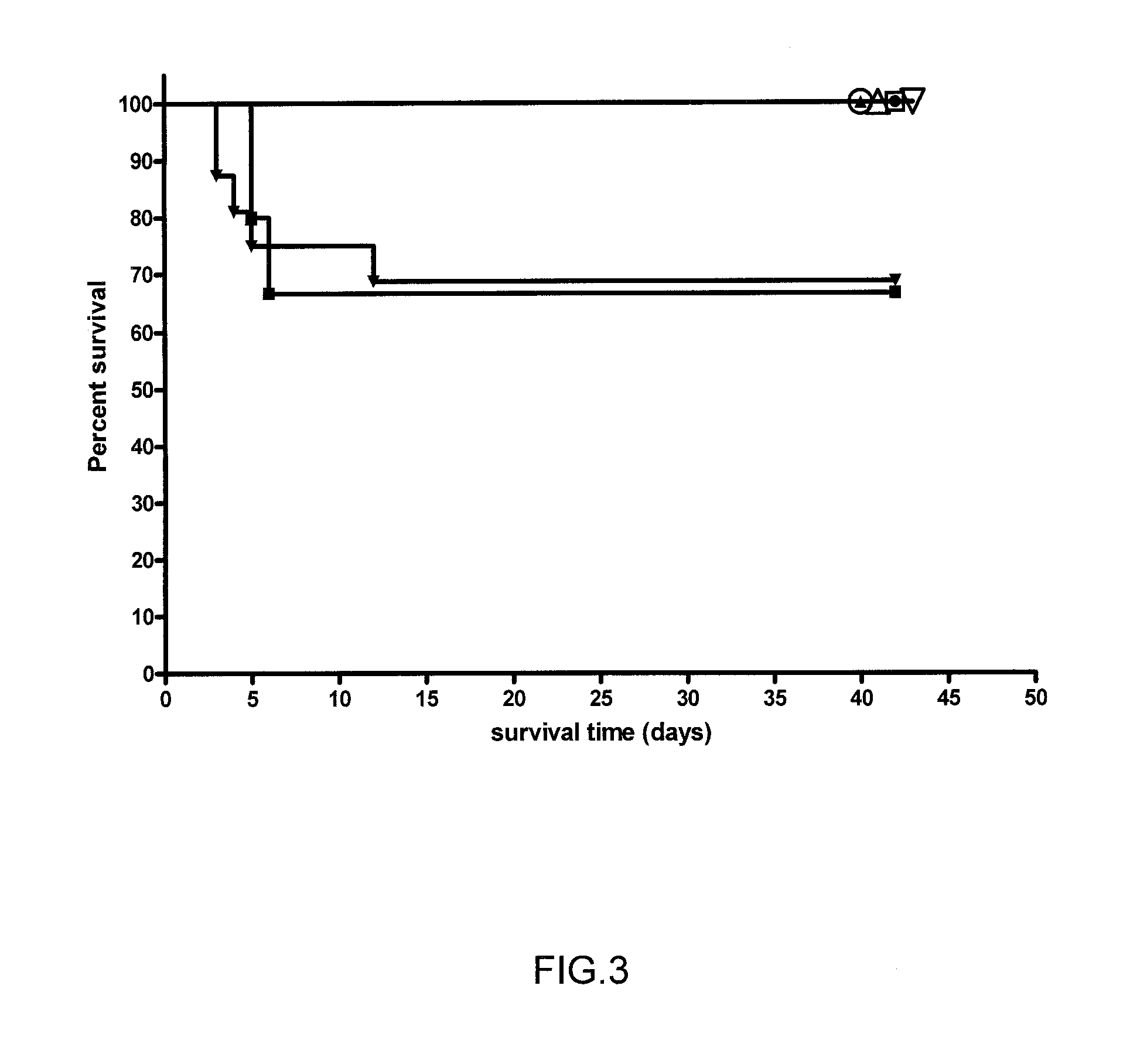Mutants of francisella tularensis and uses thereof
- Summary
- Abstract
- Description
- Claims
- Application Information
AI Technical Summary
Benefits of technology
Problems solved by technology
Method used
Image
Examples
example 1
Generating Bacterial Strains
[0058]The ATCC isolate 29684 of LVS was used for comparison with SCHU S4-based vaccines. Naturally-attenuated SCHU AV and deletion mutant SCHU S4ΔiglC have been previously described (Twine et al., 2005); these mutants were included as positive and negative SCHU S4-based vaccine controls, respectively.
[0059]New mutant strain SCHU S4ΔclpB was generated using art-known methods, generally described by Golovliov et al (2002). Briefly, an in-frame deletion of the clpB gene was constructed by allelic exchange based on integration and excision of a suicide plasmid carrying upstream and downstream sequences of the target gene. The upstream and downstream regions of the gene were amplified by PCR. The PCR fragments for the gene contained complementary sequences in the 3′ end of the upstream fragment and the 5′ end of the downstream fragment which were annealed during a second round of PCR. After restriction enzyme digestion and purification, the PCR fragments were ...
example 2
Efficacy of ID Vaccination Against Aerosol Challenge
[0062]The degree of protection against inhalation tularemia elicited by ID immunization with the mutant F. tularensis strain of Example 1 was examined.
[0063]The ID LD50 for LVS is >108 CFU, and 105 CFU administered ID protects against systemic but not aerosol challenge (Conlan et al 2003; Chen et al 2003). Therefore, 105 CFU was chosen as the ID immunizing dose for all of the test vaccine strains, and BALB / c and C3H / HeN mice as the model hosts for determining their efficacy. ID inocula were injected into a fold of skin in the mid-belly in a volume of 0.05 ml saline. Aerosol challenges were performed six weeks post-vaccination with a low dose (˜20 CFU) aerosol of type A strain SCHU S4 using an InTox Products nose-only exposure chamber as previously described (Conlan et al 2002). All animal work was performed in a federally-licensed and Select-Agent-approved small animal containment level 3 facilities. Mice were examined daily for si...
example 3
Efficacy of Oral Vaccination Against Aerosol Challenge
[0067]The degree of protection against inhalation tularemia elicited by oral immunization with the mutant F. tularensis strains of Example 1 was examined.
[0068]BALB / c mice have been shown to survive oral immunization with 108 CFU of LVS and subsequently demonstrate some protection against aerosol challenge with type A F. tularensis (KuoLee et al 2007). For this reason, 108 CFU was chosen as the oral immunizing dose for all of the test vaccine strains and BALB / c and C3H / HeN mice as the model hosts for determining their efficacy. For oral immunization, mice were gavaged once with a chosen vaccine strain suspended in 0.2 ml saline.
[0069]Most BALB / c mice immunized once orally with 108 LVS have been shown to be fully protected against low dose aerosol challenge with type A F. tularensis, but this immunity wanes substantially after 4 weeks (KuoLee et al 2007). To determine whether the present vaccine strains might be superior to LVS in...
PUM
| Property | Measurement | Unit |
|---|---|---|
| Time | aaaaa | aaaaa |
| Time | aaaaa | aaaaa |
| Time | aaaaa | aaaaa |
Abstract
Description
Claims
Application Information
 Login to View More
Login to View More - R&D
- Intellectual Property
- Life Sciences
- Materials
- Tech Scout
- Unparalleled Data Quality
- Higher Quality Content
- 60% Fewer Hallucinations
Browse by: Latest US Patents, China's latest patents, Technical Efficacy Thesaurus, Application Domain, Technology Topic, Popular Technical Reports.
© 2025 PatSnap. All rights reserved.Legal|Privacy policy|Modern Slavery Act Transparency Statement|Sitemap|About US| Contact US: help@patsnap.com



